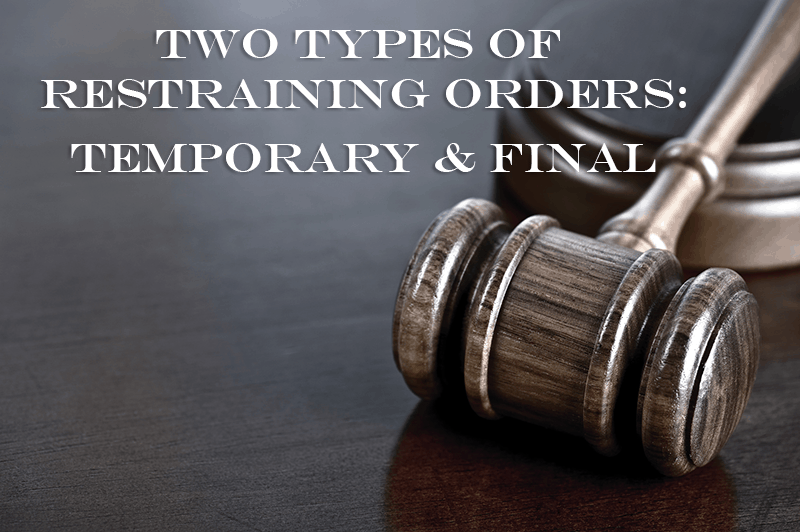Final Restraining Order:
What You Need to Know
Domestic violence is a commonplace trauma, if there is such a thing. After all, it occurs in a home, not on a battlefield. That is why it can be understandable to simply dismiss the restraining order as a mere piece of paper. It won’t literally shield an individual from verbal or physical abuse. It will, however, leave a very important trail. As they are wont to do, domestic violence cases can become protracted, with more than a few stumbling blocks along the way. A mere consistency of reporting can make all the difference when it comes time to resolve the matter once and for all. At the very least, those you might rely on for legal help, as well as the judge who will impact your future, will all appreciate efficient recordkeeping. It all starts with the temporary restraining order.
Temporary Restraining Order: In the state of NJ, the TRO can come into existence the moment a victim asks for one. That victim will have to appear before a Judge at the county Family Court during normal court hours, or at the police station during all other hours at which time his or her claims are relayed to the Municipal Judge. Although it happens, it is rare for a Judge to not issue a TRO. Once a TRO is issued, a Final Restraining Order Hearing is scheduled within ten (10) days, or as close thereto as possible, at which time a Judge in the county Superior Court, Family Part, will rule on whether to make the TRO permanent. The Judge may deny a FRO for several reasons, including but not limited to: lack of jurisdiction (the victim and defendant must share a relationship, such as family member, spouse, roommate, etc.); failure to prove the predicate act (or the incident that occurred resulting in the victim seeking a TRO); or failure to prove that the victim requires the FRO to prevent future domestic violence. As part of the final determination, the Judge always weighs the credibility of all the testimony provided and evidence submitted.
The sad truth is that all of this moot if the victim is unwilling to file for a restraining order. All too often, this is the case. Abusers will use whatever leverage they can find to silence their victims, including not just physical threats but financial ones as well. Legal professionals assure all victims of domestic violence that not only can they come forward with impunity but once the restraining order takes hold, they will be guided toward a fresh and safer start.
Please be advised that this blog is for informational purposes only, is not legal advice and does not create an attorney-client relationship.

